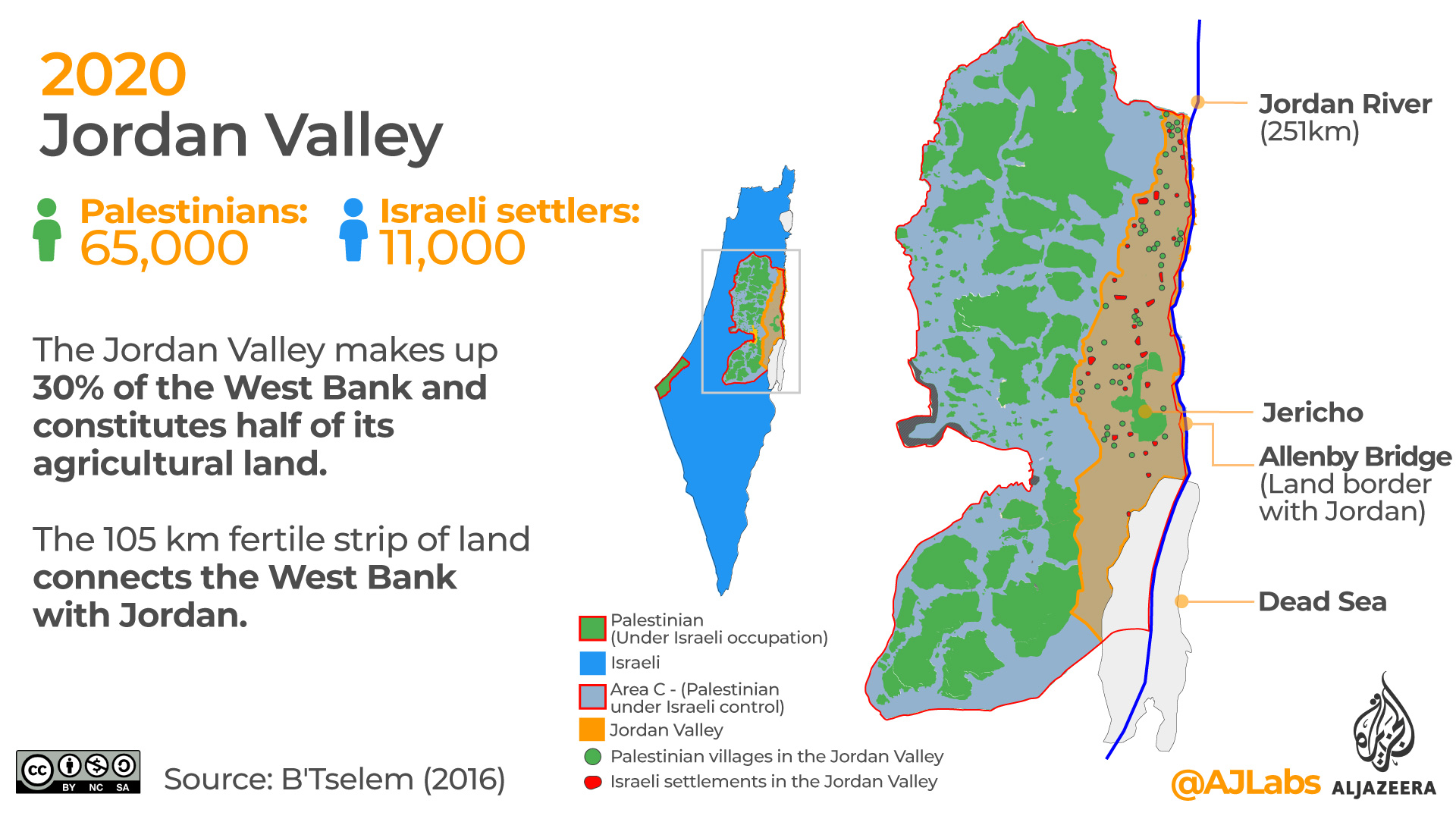Jordan PM hints at support for one Israeli-Palestinian state
Omar al-Razzaz said the alternative to closing the door on the two-state solution would be a one-state democratic one.

Jordan’s prime minister says the kingdom would look “positively” on the creation of a binational state that guarantees equal rights to Israelis and Palestinians if Israel’s proposed annexation of parts of the illegally occupied West Bank closes the door on a two-state solution.
The international community and the Palestinian leadership remain committed to a two-state solution to the decades-old conflict. Israel rejects the idea of a binational state, fearing an eventual Palestinian majority would endanger its existence as a Jewish state.
Keep reading
list of 4 itemsFrance blames Azerbaijan for New Caledonia violence: Unpacking their spat
‘Hell on Earth’ as violence escalates in Sudan’s el-Fasher
South Korean military says North Korea test-fired ‘ballistic missiles’
But Israeli Prime Minister Benjamin Netanyahu’s pledge to annex up to one-third of the occupied West Bank in line with United States President Donald Trump’s Middle East plan would make it virtually impossible to establish a viable Palestinian state.
Critics say that would force Israel to choose between being an “apartheid state” or granting equal rights to all.
|
|
“You close the door to the two-state solution, I could very well look at this positively – if we’re clearly opening the door to a one-state democratic solution,” Jordan’s Prime Minister Omar al-Razzaz told the UK’s Guardian newspaper in an interview published on Tuesday.
“But nobody in Israel is talking about that, and so we cannot just sugar-coat what they’re doing. Who’s talking about the one-state solution in Israel? They’re talking about apartheid in every single sense,” he added.
“I challenge anybody from Israel to say yes, let’s end the two-state solution, it’s not viable,” he said.
“But let’s work together on a one-state democratic solution. That, I think, we will look at very favourably. But closing one and wishful thinking about the other is just self-deception.”
Jordan, a close Western ally and one of just two Arab states to have made peace with Israel, is strongly opposed to annexation. Along with most Arab and Western countries, it supports Palestinian demands for a state in the West Bank, Gaza, and East Jerusalem, territories captured by Israel in the 1967 war.

Support for a democratic, binational state is still largely confined to a small group of intellectuals on both sides of the Israeli-Palestinian conflict. No major party or faction in Israel or the Palestinian territories endorses it.
While the two-state solution is still widely seen as the only way of resolving the conflict, the two sides remain deeply divided about the core issues and have not held substantive talks in more than a decade.
Meanwhile, the Palestinian leadership met on Tuesday and stressed the importance of carrying out popular activities across the occupied Palestinian territories against the Israeli annexation plan.
“We reject any violations of Palestinian rights, which are supported by the decisions of international law, and affirm our continuous march for the struggle of freedom and independence,” the leadership said.